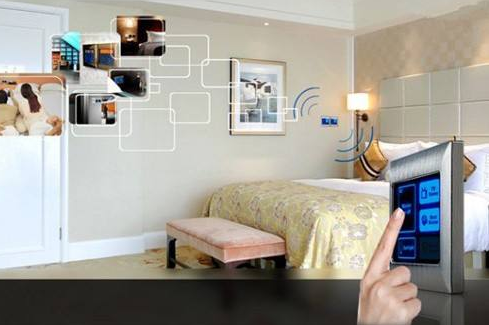"As long as you stand in the air, pigs can fly!" This is the classic statement of Xiaomi Chairman Lei Jun by countless entrepreneurs. Nowadays, this strong wind is blowing towards the smart hardware industry, and smart home is in the middle of its “outletâ€.

In the two sessions of this year, the concept of "Internet +" appeared in the government work report for the first time. Home appliance companies infiltrated by Internet companies have set their sights on smart homes. Smart homes have also become the biggest bright spot at the China Home Appliances Expo in early March. In addition to traditional home appliance companies, Internet companies have moved more quickly.
Announced on April 2, Alibaba Group announced the establishment of the Alibaba Smart Life Division, integrating the three business departments of the Group's Tmall Electric City, Alibaba Smart Cloud, and Taobao Crowdfunding to accelerate the incubation of smart hardware and fully enter the field of smart life. Alipay Wallet also announced that it will bind the Xiaomi bracelet and enable the bracelet payment function, which will provide an open interface for all smart hardware manufacturers in the future.
Alibaba Smart Life Division not only integrates e-commerce sales resources, but also integrates cloud data services and content platforms, aiming to open up the entire industry chain. This department is mainly composed of three major businesses: Smart Cloud is mainly responsible for providing relevant technology and cloud services for manufacturers; Tmall Electric City and Taobao Crowdfunding have their own focuses. The former provides "scaled" market sales channels for well-known large manufacturers. The latter provides “personalized†marketing channels for small and medium-sized manufacturers and even entrepreneurs.
In recent years, Alibaba, Lenovo, Midea, Vanke and many other well-known domestic companies have carried out relatively in-depth cooperation in smart home and other aspects. It is expected that more cooperation opportunities will be opened to the entire industry in the future.
On March 31, in preparation for the rice noodle festival on April 8, Xiaomi released 5 new products in one go. Except for two mobile phones and a TV, the scales and patch panels seemed a bit surprising. However, Xiaomi, which has been coveting smart homes for a long time, finally added a few more links to its smart home ecological chain.
In fact, when Lei Jun participated in the Sino-German ICT Summit at CeBIT this year, he made it clear that Xiaomi’s next strategy is smart home. Lei Jun believes that smart home is no longer a concept at present, because it has undergone essential changes. It used to be based on PCs. The actual application scenarios are not reliable. Today, mobile-based use scenarios are smart homes that can really be used. Pattern. Lei Jun's meaning can't be understood anymore-smart home is the next outlet!
At the beginning of March, JD Smart announced to support the New Deal, which will create a smart hardware ecosystem. Prior to this, companies such as Baidu, Xiaomi, and 360 also launched smart hardware products. Obviously, after last year's fermentation, smart terminals have deeply affected all aspects of users' lives, and Internet giants are also increasing their layout.
With the participation of Internet tycoons, the smart home, which has been a bit hot since 2014, has become an outlet, and anyone wants to come in and be a “pig†that can fly. However, although Internet manufacturers including Xiaomi, 360, Alibaba, JD.com, Baidu, etc., and traditional home appliance manufacturers such as Midea, Haier, and Changhong are all in the race, smart homes do not seem to be close to consumers. awkward. The reason is nothing more than the lack of smart home industry standards, which leads to the inability of interoperability of smart single products, which brings a poor experience to users. At the same time, the inflated product price keeps consumers out of the door.
A survey data recently released by Aoweiyun.com shows that in 2015, the output value of smart homes in my country will reach 230 billion yuan, and this figure is expected to exceed 100 billion yuan in 2020. Compared with the attractive market prospects, consumers' acceptance of smart homes is still not high. Data shows that up to 87.5% of users are dissatisfied with the current state of smart homes.
It is not difficult to see that the smart hardware industry, including smart homes, has just passed its "first year", and the industry is still facing various problems and problems. However, with the Internet of Things-based mobile medical care, smart homes, smart cities, etc. With the further implementation of the concept, smart hardware, a large cake of thousands and trillions, has become another industry hotspot after the mobile Internet, and smart home, as the smart hardware field closest to people's daily life, has its “outlet†effect.
Wall switch and socket ,Champagne wall switch and socket, 16A push switch and socket
Guangdong Shunde Langzhi Trading CO., Ltd , https://www.langzhielectrical.com